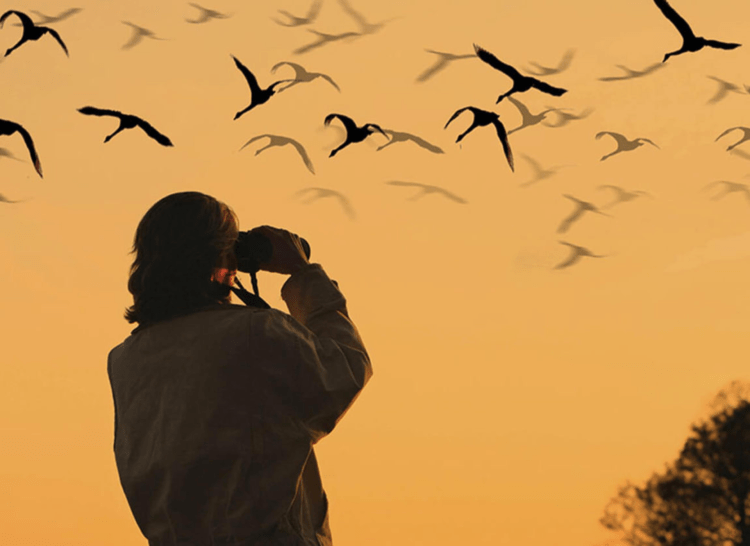
A recent study reveals that college students who engage in birdwatching and nature experiences report improved well-being and reduced psychological distress compared to those who do not.
The lead author of the study, environmental biologist Nils Peterson from North Carolina State University, highlighted the importance of such nature-based activities for students, especially amid the challenges faced during the pandemic.
The study found that students who went birdwatching showed higher gains in well-being and a greater reduction in psychological distress compared to those who engaged in generic nature experiences like walks. Birdwatching, being a globally popular activity, offers accessible opportunities for students, even in urban settings.
To measure students’ subjective well-being, researchers used a survey called the World Health Organization-Five Well-Being Index. They also assessed psychological distress using the STOP-D questionnaire. Results showed that birdwatching led to significant improvements in well-being and decreased distress levels among participants.
Participants were divided into birdwatching, nature walk, and control groups. Birdwatchers were instructed to observe birds for 30 minutes weekly, while the nature walk group walked the same route without birdwatching. Findings revealed that birdwatching had a more significant positive impact on mental health compared to nature walks.
The study emphasizes the importance of birdwatching as a simple yet effective way to enhance mental health among college students. It also underscores the need for diversity in birdwatching communities to ensure equitable distribution of its mental health benefits.
While the study’s sample size was small, it suggests that promoting birdwatching could address mental health concerns on college campuses. Future research could explore demographic factors and past experiences to better understand the relationship between birdwatching and psychological well-being. Additionally, fostering a passion for environmental conservation alongside birdwatching could contribute to protecting bird populations.


